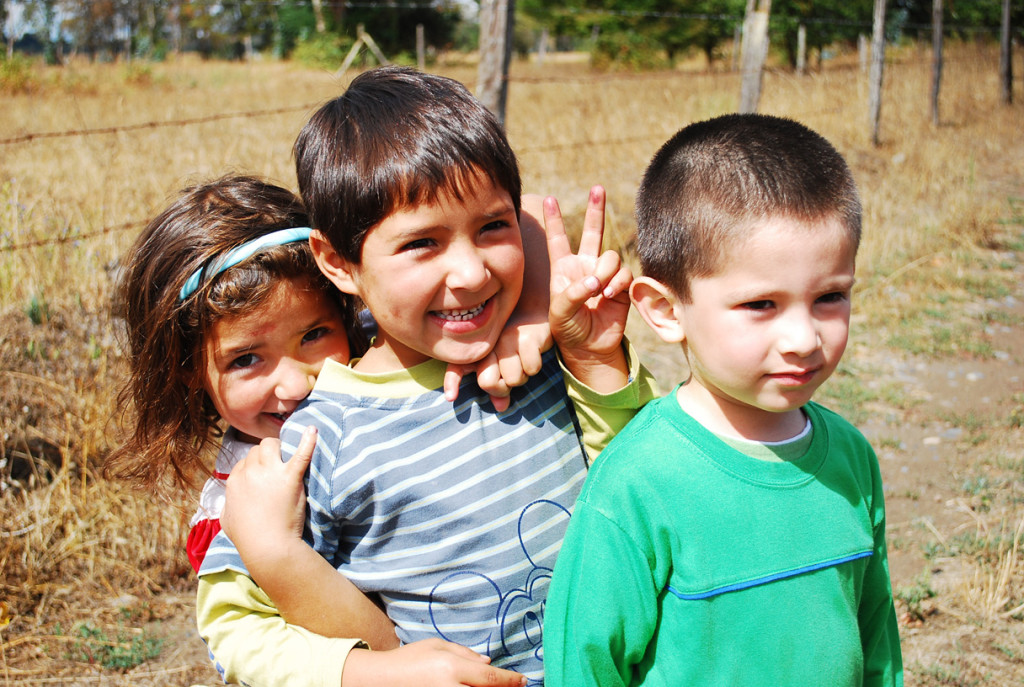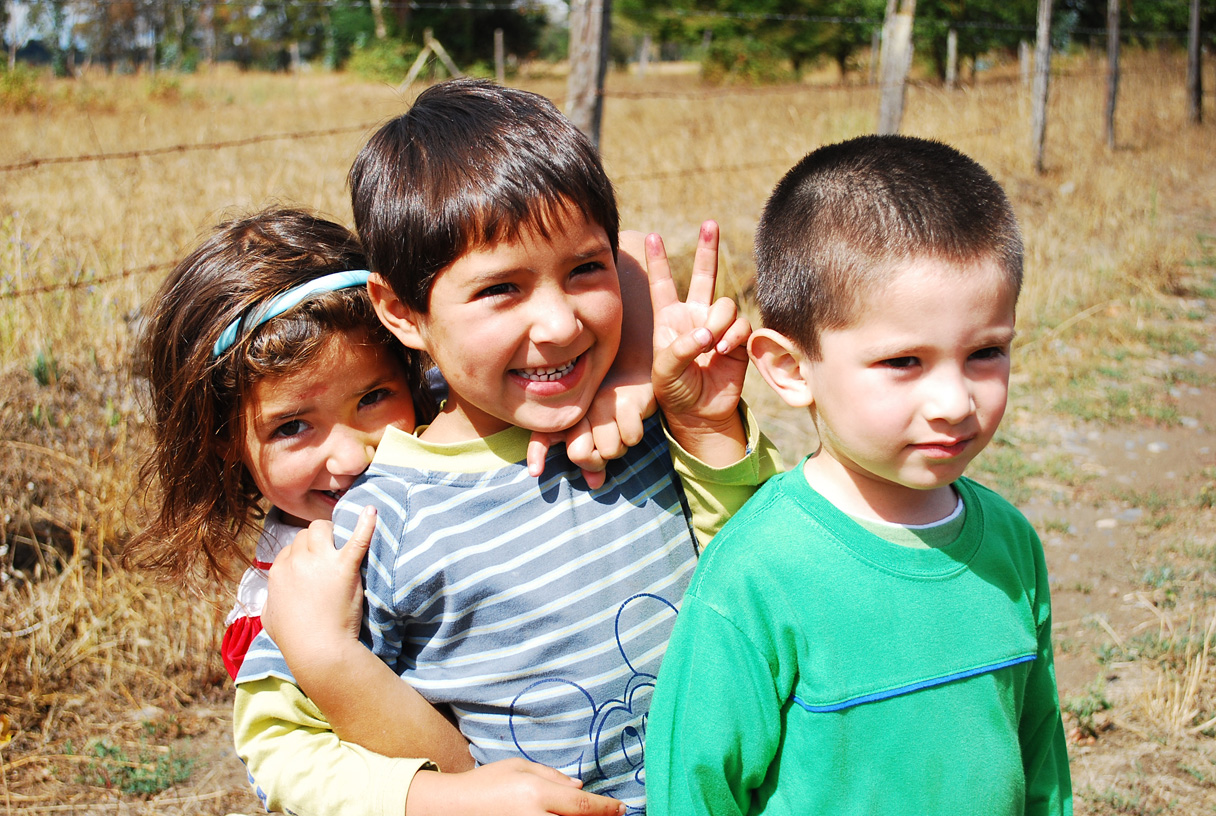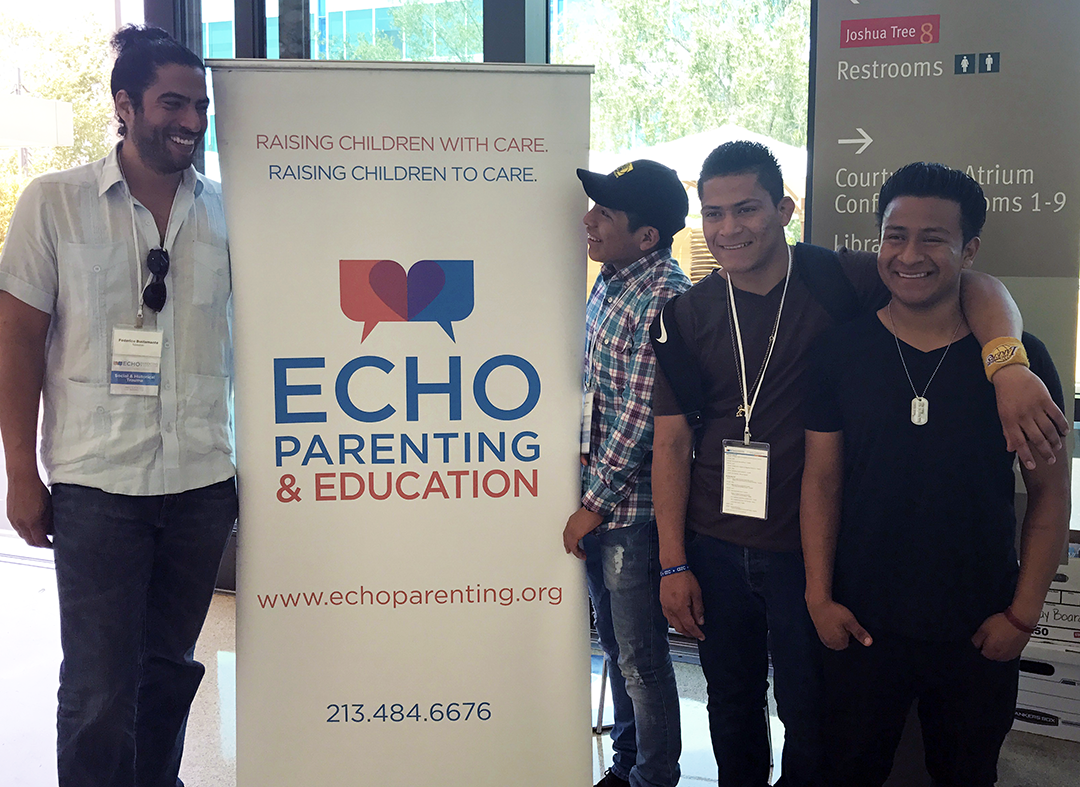
 Echo has been working with domestic violence shelters for many years, helping parents and children who have experienced domestic violence. Recently, one of our Parent Educators, Lizeth Toscano, who has been working closely with domestic violence shelters, gave an interview to a reporter from DomesticShelters.org. We thought what she had to say was important to share with all our newsletter readers, not only for those parents whose lives have been directly impacted by domestic violence, but also in the light of the controversial ‘black dot’ campaign that revealed the need for professionals to have more information about how to have conversations about domestic violence.
Echo has been working with domestic violence shelters for many years, helping parents and children who have experienced domestic violence. Recently, one of our Parent Educators, Lizeth Toscano, who has been working closely with domestic violence shelters, gave an interview to a reporter from DomesticShelters.org. We thought what she had to say was important to share with all our newsletter readers, not only for those parents whose lives have been directly impacted by domestic violence, but also in the light of the controversial ‘black dot’ campaign that revealed the need for professionals to have more information about how to have conversations about domestic violence.
“What are the main things a parent needs to be know before starting a conversation with a child who has witnessed domestic violence?”
Lizeth: There are three things a parent should be aware of:
– Children need to understand that feelings such as being scared or worried are normal responses to the trauma they have experience
– Children need to be able to share their story as part of the healing process
– ‘Trauma bonding’ (the result of the strong emotions elicited by the cycle of violence) may mean that the child still loves and wants to be around the abuser
“What are some things a parent can do to help facilitate the conversation?”
Lizeth: Allowing children to express themselves through art, movement or music can help children make sense of their domestic violent experience. Making sense of the experience (‘creating a coherent narrative’) is an important part of recovery from trauma. Parents can also use ‘empathy books‘ to help the child process their thoughts and feelings. Playing with molding clay helps children (and the caregiver) regulate the emotions that come up when they talk about the domestic violence experience together. These and other regulation techniques (belly breathing, blowing bubbles, imaging a safe place) can help create a sense of safety and reestablish the relationship between child and caregiver. It is also empowering for a child to learn how to self-soothe.
“When is it appropriate/necessary to talk to kids about domestic violence?”
Lizeth:: I’ve been working at in shelters for about 2 years and this is a question that comes up a lot. Always take the lead from the child. Talk when the child is ready. To determine if a child is ready, you can open the conversation with, “That must have been so scary for you.” “What was that like for you?” When the child is ready, they will begin to communicate either verbally or somatically (through their body’s reactions).
“How does trauma manifest?”
Lizeth: Trauma responses can be verbal or somatic (in the body). Somatic responses happen when kids internalize their response to the event. This happens when they feel it is not safe to talk. Also, if certain brain areas have not yet fully matured, their experience will be stored in their body.
It is important to watch kids after an event – is there anything that has changed or shifted. Bellyaches are common, especially with younger children. Some will be afraid to leave their parent(s). Particularly those under six may identify with the violent behavior in an attempt to regain a sense of control when they feel helpless or powerless. They may hit siblings or mom or begin using knives or scissors.
“How do you have that conversation about the child’s violent behavior when they’ve viewed a parent modeling it?”
Lizeth: Feelings are always okay. If a child is using motor actions to communicate, they may need other, safer motor actions to regulate before they can access the higher part of the brain that is responsible for language. You might use language such as, “It’s okay for you to feel angry, but it is not okay for you to hit mommy.”
These conversations should always start with empathy: “It must have been so scary when so and so hit…” The children are using that behavior because it is something they’ve seen.
“Back to the broader conversation of talking to kids… What else should be discussed in that conversation?”
Lizeth: Helpful statements include: “It’s not your fault. The violence is not okay. I’m here to listen to you. I love you. I’m sorry you had to see that. That must have been so scary for you.” Sometimes these things are hard for parents to say because of their own trauma. It is appropriate to use physical containment to help kids through that process – that might look like a hug, or a rub on their back.
How should this conversation change with adolescents?
Lizeth: Some kids will use words, some will not. We like to use art and journaling; journaling works especially well with teens. A parent might say: “I know it does not feel safe to talk to me, but I hope we can talk about this through other form.
With teens, we help parents think about helping the teen define healthy relationships for dating. We need to identify core, healthy parts of a relationship. We look at gender stereotypes. These things are more difficult for children who have experienced domestic violence.
“Does your approach differ between boys and girls?”
Lizeth: I encourage the parents to think about the role models that each boy and girls gets from society… what other messages are they getting through video games, gender stereotypes, etc.
Also, we might start the conversation differently with boys: Boys tend to have more aggressive behavior than girls as a result of domestic violence. It’s more socially accepted for boys to express anger.
“Any other tips?”
Lizeth: To be able to talk to kids about domestic violence, parents need support as well.
There is no way for parents to have these conversations without being triggered themselves. Maybe parents will want to talk to a therapist or counselor to examine why these conversations are so hard to have with their child. Some parents may be transported back to when they were a child and the feelings of rage or shame that they experienced.
The thing to remember is that if you sit in silence, the child sits in shame and blame. Children will construct their own narrative around events. Having the conversation is hard on the survivor and may trigger anxiety and traumatic memories. But silence isn’t an option. Silence is saying it’s OK that the violence happened.
 Lizeth Toscano, ACSW, Lizeth joined Echo in 2011 as a parent educator specializing in working with domestic violence survivors. She graduated with a MSW from USC in May 2015. Lizeth has worked with parents and domestic violence survivors since obtaining her BSW from San Diego State University in 2010, both as a case manager with parents for Home-SAFE, Early Head Start Services, and as an intern MSW therapist for Hillsides and the National Council of Jewish Women, Women Helping Women.
Lizeth Toscano, ACSW, Lizeth joined Echo in 2011 as a parent educator specializing in working with domestic violence survivors. She graduated with a MSW from USC in May 2015. Lizeth has worked with parents and domestic violence survivors since obtaining her BSW from San Diego State University in 2010, both as a case manager with parents for Home-SAFE, Early Head Start Services, and as an intern MSW therapist for Hillsides and the National Council of Jewish Women, Women Helping Women.



